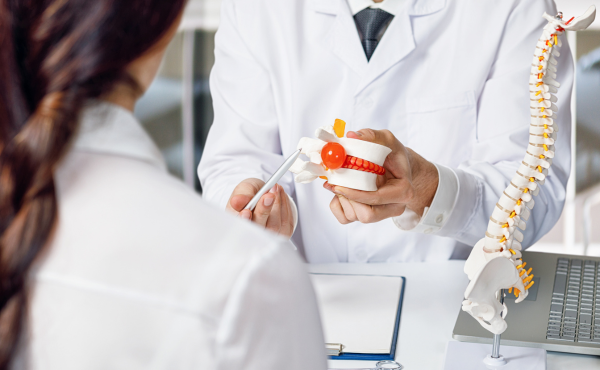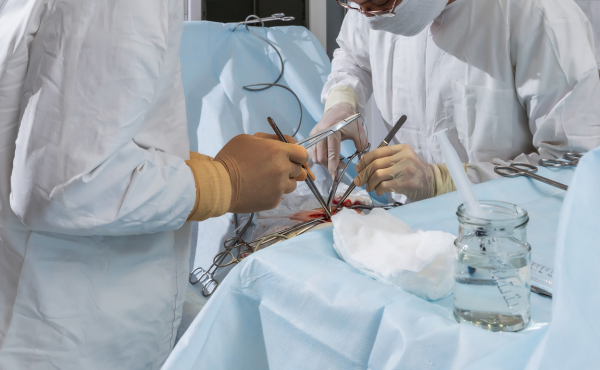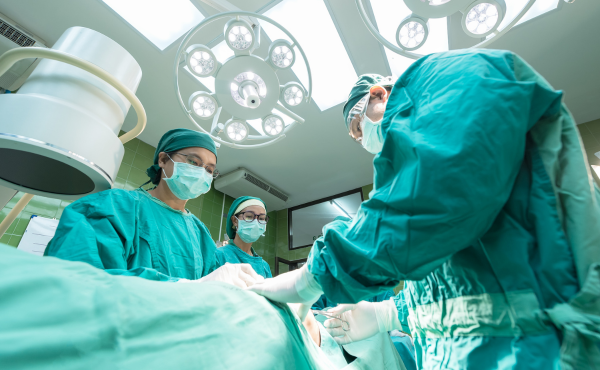Inguinal Hernia Surgery
Inguinal hernia surgery is a procedure performed to repair an inguinal hernia, which occurs when a portion of the intestine or abdominal tissue protrudes through a weak spot in the lower abdominal wall or groin area. This type of hernia is one of the most common and can cause pain, discomfort, and complications if left untreated. Surgery is recommended to prevent complications such as strangulation, where the herniated tissue loses blood supply.
The procedure can be done using an open surgical approach, where a larger incision is made to push the hernia back and reinforce the area with stitches or mesh, or through a laparoscopic method, which is minimally invasive and involves smaller incisions, a camera, and specialized instruments.


When is Inguinal Hernia Surgery Needed?
- Persistent Pain or Discomfort – If the hernia causes ongoing pain, pressure, or a burning sensation, especially when lifting, bending, or standing for long periods.
- Enlarging Hernia – When the hernia increases in size over time, indicating a growing weakness in the abdominal wall.
- Obstruction of the Intestine – A hernia that presses on the intestine can cause symptoms such as nausea, vomiting, constipation, or difficulty passing gas, requiring immediate medical attention.
- Strangulation Risk – If the herniated tissue becomes trapped and its blood supply is cut off, it can lead to severe pain, swelling, and tissue damage, which is a medical emergency requiring urgent surgery.
Recovery After Inguinal Hernia :
- Hospital Stay & Immediate Post-Surgery Care – Most laparoscopic hernia repairs are performed as outpatient procedures, allowing patients to return home the same day. Open surgeries may require an overnight hospital stay in some cases.
- Pain Management – Mild to moderate discomfort is common after surgery, which can be managed with prescribed or over-the-counter pain medications. Ice packs can help reduce swelling and ease pain.
- Activity Restrictions – Patients are advised to avoid heavy lifting, strenuous exercise, or any activity that puts pressure on the surgical site for at least 4-6 weeks. Walking and light movement are encouraged to promote circulation and prevent blood clots.
- Wound Care – Keeping the incision area clean and dry is crucial for healing. Stitches or staples, if used, may need to be removed by the doctor in follow-up appointments.


Benefits of Inguinal Hernia Surgery :
- Permanent Hernia Repair – Surgery effectively closes the weak spot in the abdominal wall, reducing the risk of recurrence and preventing complications like strangulation or bowel obstruction.
- Pain Relief & Improved Comfort – Surgery eliminates discomfort, heaviness, or pain associated with an inguinal hernia, allowing patients to return to normal daily activities without restrictions.
- Minimally Invasive Option Available – Laparoscopic hernia repair offers smaller incisions, reduced scarring, and a quicker recovery compared to traditional open surgery.
- Reduced Risk of Complications – Timely surgery prevents severe complications such as hernia strangulation, which can cut off blood supply to the intestines and require emergency surgery.
